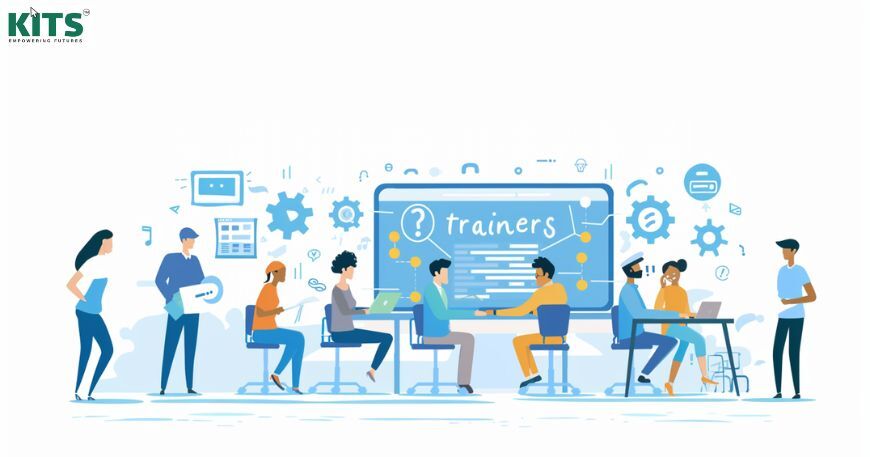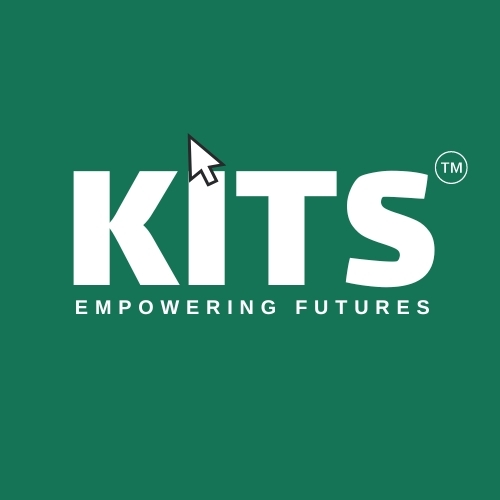Each year, a significant number of students opt for the science stream with aspirations of pursuing careers in the technical field. There are numerous pathways available for these students, promising a bright future ahead. However, when considering technical courses, only a few options like B.Tech and B.Com usually come to mind. Choosing the right path after Class 12 can be overwhelming. With numerous options available, it’s crucial to select a course that not only aligns with your interests but also offers promising career prospects. Discover top technical courses after Class 12 at KITS to boost your career with in-demand skills and innovative learning.
Here are 10 life-changing technical courses after Class 12 that you need to know about. These courses are designed to provide you with the skills and knowledge required to excel in the ever-evolving tech industry.
1. Computer Science Engineering (CSE)
Computer Science Engineering is a top choice for students interested in coding, software development, and computer systems. This course covers various programming languages, algorithms, data structures, and computer architecture. Graduates can pursue careers as software developers, system analysts, and IT consultants.
2. Information Technology (IT)
Information Technology focuses on the application of computer technology to solve business problems. Students learn about database management, networking, web development, and cybersecurity. IT professionals are in high demand across various industries, making it a lucrative career option.
3. Mechanical Engineering
Mechanical Engineering is one of the oldest and most diverse engineering disciplines. It involves the design, analysis, and manufacturing of mechanical systems. With the advent of automation and robotics, mechanical engineers are essential in developing innovative solutions for the modern world.
4. Electrical and Electronics Engineering (EEE)
This course combines electrical engineering with electronics to cover a wide range of topics, including circuit design, power systems, and control systems. Graduates can work in industries such as telecommunications, energy, and consumer electronics.
5. Civil Engineering
Civil Engineering deals with the design, construction, and maintenance of infrastructure projects like roads, bridges, and buildings. With rapid urbanization, there is a growing need for skilled civil engineers to ensure the development of sustainable and resilient infrastructure.
6. Aerospace Engineering
Aerospace Engineering is ideal for those fascinated by aircraft and spacecraft. This course covers the design, development, and maintenance of aviation and space exploration systems. Aerospace engineers work on cutting-edge technology, contributing to advancements in air and space travel.
7. Biomedical Engineering
Biomedical Engineering is an interdisciplinary field that combines engineering principles with medical sciences. Students learn to design and develop medical devices, prosthetics, and diagnostic equipment. This course is perfect for those who want to make a difference in healthcare through innovation.
8. Chemical Engineering
Chemical Engineering involves the study of chemical processes and their applications in industries such as pharmaceuticals, petrochemicals, and food processing. This course equips students with the skills to develop new materials, optimize production processes, and ensure environmental sustainability.
9. Environmental Engineering
Environmental Engineering focuses on developing solutions to environmental problems, such as pollution control, waste management, and sustainable development. This course is ideal for students passionate about preserving the environment and contributing to a greener future.
10. Robotics and Automation
Robotics and Automation is a rapidly growing field with applications in manufacturing, healthcare, and service industries. Students learn about robot design, control systems, and artificial intelligence. This course prepares graduates for careers in developing and managing automated systems.
Eligibility Criteria for Technical Courses After Class 12
Understanding the eligibility criteria for various technical courses after Class 12 is crucial for students aiming to pursue careers in the technical field. Here’s a detailed breakdown of the eligibility requirements for some of the most popular technical courses:
| courses | Eligibility criteria |
| Computer Science Engineering (CSE) | Completed Class 12 with PCM Minimum aggregate marks as specified by the college/university Qualifying scores in entrance exams like JEE Main, state-level exams, or college-specific exams |
Information Technology (IT) | Completed Class 12 with PCM Minimum aggregate marks as specified by the college/university Qualifying scores in entrance exams like JEE Main, state-level exams, or college-specific exams |
| Mechanical Engineering | Completed Class 12 with PCM Minimum aggregate marks as specified by the college/university Qualifying scores in entrance exams like JEE Main, state-level exams, or college-specific exams |
| Electrical and Electronics Engineering (EEE) | Completed Class 12 with PCM Minimum aggregate marks as specified by the college/university Qualifying scores in entrance exams like JEE Main, state-level exams, or college-specific exams |
Civil Engineering | Completed Class 12 with PCM Minimum aggregate marks as specified by the college/university Qualifying scores in entrance exams like JEE Main, state-level exams, or college-specific exams |
Aerospace Engineering | Completed Class 12 with PCM Minimum aggregate marks as specified by the college/university Qualifying scores in entrance exams like JEE Main, state-level exams, or college-specific exams |
Biomedical Engineering | Completed Class 12 with PCM or PCB (Physics, Chemistry, Biology) Minimum aggregate marks as specified by the college/university Qualifying score in entrance exams like JEE Main, state-level exams, or college-specific exams |
Chemical Engineering | – Completed Class 12 with PCM – Minimum aggregate marks as specified by the college/university – Qualifying scores in entrance exams like JEE Main, state-level exams, or college-specific exams |
Robotics and Automation | Completed Class 12 with PCM Minimum aggregate marks as specified by the college/university Qualifying scores in entrance exams like JEE Main, state-level exams, or college-specific exams |
Environmental Engineering | Completed Class 12 with PCM Minimum aggregate marks as specified by the college/university Qualifying scores in entrance exams like JEE Main, state-level exams, or college-specific exams |
Computer Science Engineering (CSE): Students must have completed Class 12 with Physics, Chemistry, and Mathematics, and must meet the minimum aggregate marks specified by their chosen college or university. They also need to qualify in relevant entrance exams like JEE Main or JEE Advanced.
Information Technology (IT): Similar to CSE, this course requires students to have completed Class 12 with PCM and meet the minimum aggregate marks. Entrance exam qualifications such as JEE Main are also necessary.
Mechanical Engineering: Candidates must have completed Class 12 with PCM, meet the required aggregate marks, and qualify in entrance exams like JEE Main.
Electrical and Electronics Engineering (EEE): The eligibility criteria are the same as for Mechanical Engineering, requiring PCM in Class 12, minimum aggregate marks, and entrance exam qualifications.
Civil Engineering: Students must have completed Class 12 with PCM, meet the minimum aggregate marks, and qualify in entrance exams like JEE Main.
Aerospace Engineering: The criteria are similar to other engineering courses, with Class 12 PCM, minimum aggregate marks, and entrance exam qualifications being necessary.
Biomedical Engineering: This course can be pursued by students who have completed Class 12 with either PCM or PCB. They must meet the minimum aggregate marks and qualify in relevant entrance exams.
Chemical Engineering: Candidates must have completed Class 12 with PCM, meet the required aggregate marks, and qualify in entrance exams like JEE Main.
Environmental Engineering: Students need to have completed Class 12 with PCM, meet the minimum aggregate marks, and qualify in entrance exams like JEE Main.
Robotics and Automation: The eligibility criteria are similar to other engineering disciplines, requiring PCM in Class 12, minimum aggregate marks, and entrance exam qualifications.
By meeting these eligibility criteria, students can pursue these life-changing technical courses after Class 12, setting a solid foundation for their careers in various tech fields.
Advantages of Pursuing Technical Courses After Class 12
Technical courses after Class 12 offer substantial advantages for students:
Abundant Career Opportunities: Fields such as engineering, computer science, and biotechnology provide diverse career pathways. These sectors are in constant demand for skilled professionals across various industries.
Practical Skill Enhancement: These courses emphasize hands-on learning and practical application. Students acquire specific skills directly relevant to industry needs, ensuring they are well-prepared for employment upon graduation.
Promotion of Innovation and Problem-Solving: Technical education nurtures critical thinking and problem-solving abilities. Students engage in projects that demand innovative solutions, cultivating a mindset oriented towards creativity and efficiency.
Contribution to Economic Growth: Graduates play a crucial role in driving economic progress. By integrating into the workforce, they contribute to technological advancements and enhance productivity across sectors.
Financial Rewards: Graduates of technical courses often command higher starting salaries than their counterparts from non-technical fields. Their specialized knowledge and skills are highly valued in the job market, offering financial stability and growth opportunities.
By opting for technical courses after Class 12, students not only pave the way for rewarding careers but also contribute actively to societal and economic development through their expertise and innovation.
Conclusion
Selecting the right technical course after Class 12 can set the foundation for a successful and fulfilling career. The courses mentioned above offer excellent opportunities for growth and development in various sectors. Whether you’re passionate about coding, engineering, or environmental sustainability, there’s a technical course that can help you achieve your career goals.
At Kyaas Institute of Technical Skills (KITS), we offer comprehensive programs and resources to guide you in making informed decisions about your future. Explore these life-changing technical courses and embark on a journey towards a rewarding career.
For more information on technical courses after Class 12, visit our website or contact us today.



